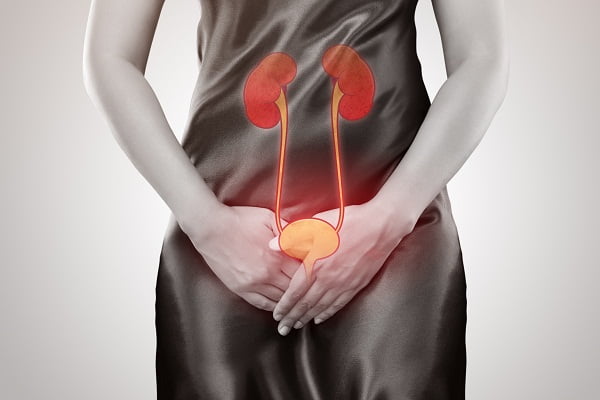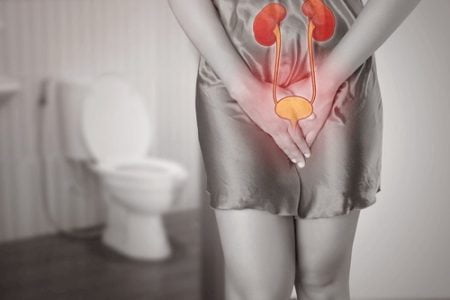Causes of Urinary Tract Infection
- Updated on: Jun 29, 2024
- 3 min Read
- Published on Feb 21, 2021

Causes of Urinary Tract Infections
Urinary Tract infections (UTIs) are the reason why doctors often advise to clean from front to back after using the bathroom. This is because our urethra which transports urine from the bladder to outside of the body is located close to the anus. Bacteria such as E. coli that reside in the intestines can easily escape the anus and attack the urethra. Women are particularly prone to UTIs because they have shorter urethras. This allows the microbes a quick entry to our bladder where they begin multiply in number.
Urinary tract infections (UTIs) are caused by microbes such as bacteria in the urinary tracts. They have the potential to affect your kidneys, bladder, and other areas in the urinary tract. They are one of the most common types of infections. About 8.1 million visits to doctors are recorded each year for UTIs. Anyone of any age and sex can develop a UTI. However, some people are at higher risk than others. The following factors can increase the risk of developing a UTI:
Other Risk Factors for Urinary Tract Infections
- Female Anatomy: A woman has a shorter urethra than a man has. This means the bacteria have to travel a shorter distance to reach the bladder and cause UTI.
- Diabetes
- Poor hygiene
- Frequent and intense sexual intercourse
- Sexual intercourse with multiple or new partners
- Use of a urinary catheter: People who are not able to urinate on their own for some reason and use a catheter to urinate have an increased risk of UTIs. People who are hospitalized or people with neurological disorders where it is difficult to control urine and people who are paralyzed require catheters for urination. Such people are at higher risk.
- Bowel incontinence
- Blocked flow of urine
- Pregnancy
- Kidney stones: Kidney stones or enlarged prostate glands can cause urine to be trapped in the bladder and increase the risk of infections.
- Menopause
- Surgical procedures of the urinary tract: Surgery or an examination/test of your urinary tract using medical instruments can increase your risk of developing a urinary tract infection. The instruments may contain microbes and they can transfer to the urinary organs to cause infections.
- Weak immune system
- Use of tampons
- Certain forms of contraception and birth control methods can put you at higher risk. Women who use diaphragms or spermicidal agents for birth control are at higher risk.
- Frequent use of antibiotics
- Urinary tract abnormalities: Infants who are born with urinary tract abnormalities are at an increased risk of UTIs.
- UTIs mainly affect the bladder and urethra, though other organs can be affected as well.
Infection of the bladder (cystitis):
It is generally caused by Escherichia coli (E. coli) which is a type of bacteria commonly found in the gastrointestinal (GI) tract. Other bacteria though can also cause it. Sexual intercourse is a major reason for such infections.
Infection of the urethra (urethritis): It is generally caused when bacteria spread from the anus to the urethra.?
FAQs
Can dehydration contribute to urinary tract infections (UTIs)?
Dehydration can impact urinary health, making it easier for bacteria to cause infections. Staying well-hydrated is an important preventive measure against UTIs.
Are there specific foods that increase the risk of UTIs?
Certain foods, such as spicy or acidic ones, may irritate the urinary tract. However, there's no direct evidence linking specific foods to increased UTI risk. Maintaining a balanced diet and hydration is key.
Can sexual activity cause urinary tract infections?
Sexual activity can introduce bacteria into the urethra, increasing the risk of UTIs. Practicing good hygiene and emptying the bladder after intercourse can help prevent infections.
Are UTIs more common in women than in men?
Yes, women are more prone to UTIs due to their shorter urethras. However, men can also develop UTIs, especially if they have underlying health conditions.
Can chronic medical conditions increase the risk of UTIs?
Certain conditions, such as diabetes or kidney problems, can weaken the immune system and contribute to UTIs. Managing underlying health issues is crucial for overall urinary health.












